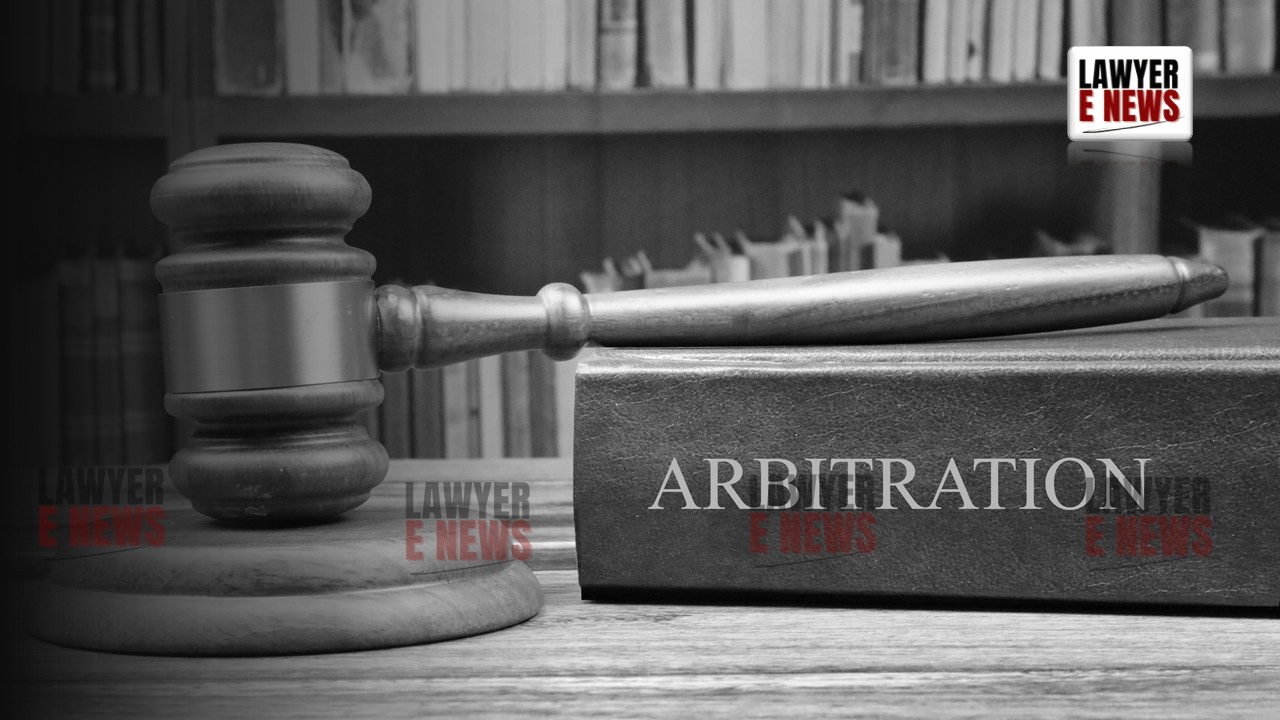-
by sayum
17 February 2026 8:32 AM



“The invocation of an unconditional bank guarantee must be honoured in accordance with its terms—courts must not intervene unless a case of egregious fraud or irretrievable injustice is made out.” - In a significant ruling Supreme Court of India revisited and reinforced settled principles regarding judicial interference with bank guarantees in arbitration disputes. The Court held that courts must refrain from granting injunctive relief against invocation of an unconditional bank guarantee unless a clear case of fraud or irretrievable injury is established.
While declining to interfere with the interim protection granted by the High Court under Article 227 of the Constitution, the Court underlined that “bank guarantees are the backbone of commercial transactions” and any deviation from their enforcement must be strictly confined to exceptional circumstances. Despite strong arguments raised against the High Court’s jurisdiction, the Supreme Court left the legal issues open owing to the peculiar facts and advanced stage of proceedings under Section 9 of the Arbitration and Conciliation Act, 1996.
The dispute arose out of a construction contract dated January 24, 2022, awarded by Jindal Steel and Power Ltd. to Bansal Infra Projects Pvt. Ltd. for building 400 flats at Jindal Nagar, South Block, for ₹43.99 crore. Against an advance payment of ₹3.73 crore, the contractor furnished a bank guarantee on March 8, 2022.
Despite multiple deadline extensions, the appellants terminated the contract citing continued default, substandard work, and failure to meet contractual obligations. On March 25, 2024, they issued a notice demanding refund of ₹4.12 crore, warning that the bank guarantee would be encashed if payment was not received by April 30, 2024.
In response, the contractor filed a Section 9 petition seeking interim protection against invocation of the bank guarantee and simultaneously initiated arbitration. The Commercial Court refused to grant an ex parte injunction, issuing notice instead. The respondent then approached the High Court under Article 227, which granted interim protection by directing parties to maintain status quo on the bank guarantee until disposal of the Section 9 petition. This High Court order became the subject of appeal before the Supreme Court.
The Supreme Court examined whether the High Court’s exercise of supervisory jurisdiction under Article 227 was justified in light of the availability of statutory appellate remedies under Section 37 of the Arbitration and Conciliation Act.
The appellants argued that the order passed by the Commercial Court—refusing ex parte relief under Order XXXIX Rule 3 CPC in a Section 9 petition—amounted to a refusal to grant interim measures under Section 9 and was thus appealable under Section 37(1)(b). They contended: “The expression ‘granting or refusing to grant any measure under Section 9’ is broad and includes orders denying ex parte relief.”
They maintained that the High Court’s order: “Proceeded on an erroneous understanding of the law by treating such an interim order as not appealable, and thereby unjustifiably assumed jurisdiction under Article 227.”
The appellants further asserted that interference with an unconditional bank guarantee could not be sustained in law: “An unconditional bank guarantee is an independent contract between the bank and the beneficiary and must be honoured, save in cases of established fraud or irretrievable injustice.”
In contrast, the respondents contended that the order passed by the Commercial Court was not a final determination under Section 9, and therefore not appealable under Section 37. They insisted that: “The Commercial Court’s refusal to grant ex parte relief merely directed issuance of notice—it was not an adjudication on merits.”
They also invoked the principle of special equities, asserting that: “Invocation of the bank guarantee without adjudication of the debit claim would result in irreparable financial hardship.”
Respondents highlighted that the bank guarantee had been extended to preserve the status quo and prevent prejudice to either side.
The Court acknowledged the foundational principle that: “The courts should refrain from interfering with the invocation of a bank guarantee except in cases of fraud of an egregious nature or where irretrievable injustice would result.”
Quoting extensively from Hindustan Construction Co. Ltd. v. State of Bihar (1999) 8 SCC 436, the Bench reiterated: “What is important is that the bank guarantee should be in unequivocal terms, unconditional and recite that the amount would be paid without demur or objection… The invocation, therefore, will have to be in accordance with the terms of the bank guarantee; or else, the invocation itself would be bad.”
The Court found, however, that in the present case: “The High Court’s interim order was passed with the consent of the parties and limited to preserving the position until the Commercial Court disposed of the pending Section 9 petition.”
The Supreme Court thus held: “We are of the view that the order passed by the High Court is merely an interim measure intended to protect the interests of both parties.”
Acknowledging the continuation of arbitration and the bona fide extension of the bank guarantee till June 30, 2025, the Court declined to rule on the larger legal issues and directed: “The Commercial Court shall pass appropriate orders within a period of eight weeks… Until such time, the bank guarantee shall be kept alive and shall be subject to the outcome of the Section 9 arbitration petition.”
The Supreme Court, while leaving open the substantial legal issues relating to appealability under Section 37 and the scope of writ jurisdiction under Article 227, upheld the High Court’s interim arrangement on pragmatic grounds. The judgment reinforces the strict standards applicable to judicial interference with bank guarantees and underscores the importance of expeditious arbitral resolution.
Date of Decision: May 7, 2025
